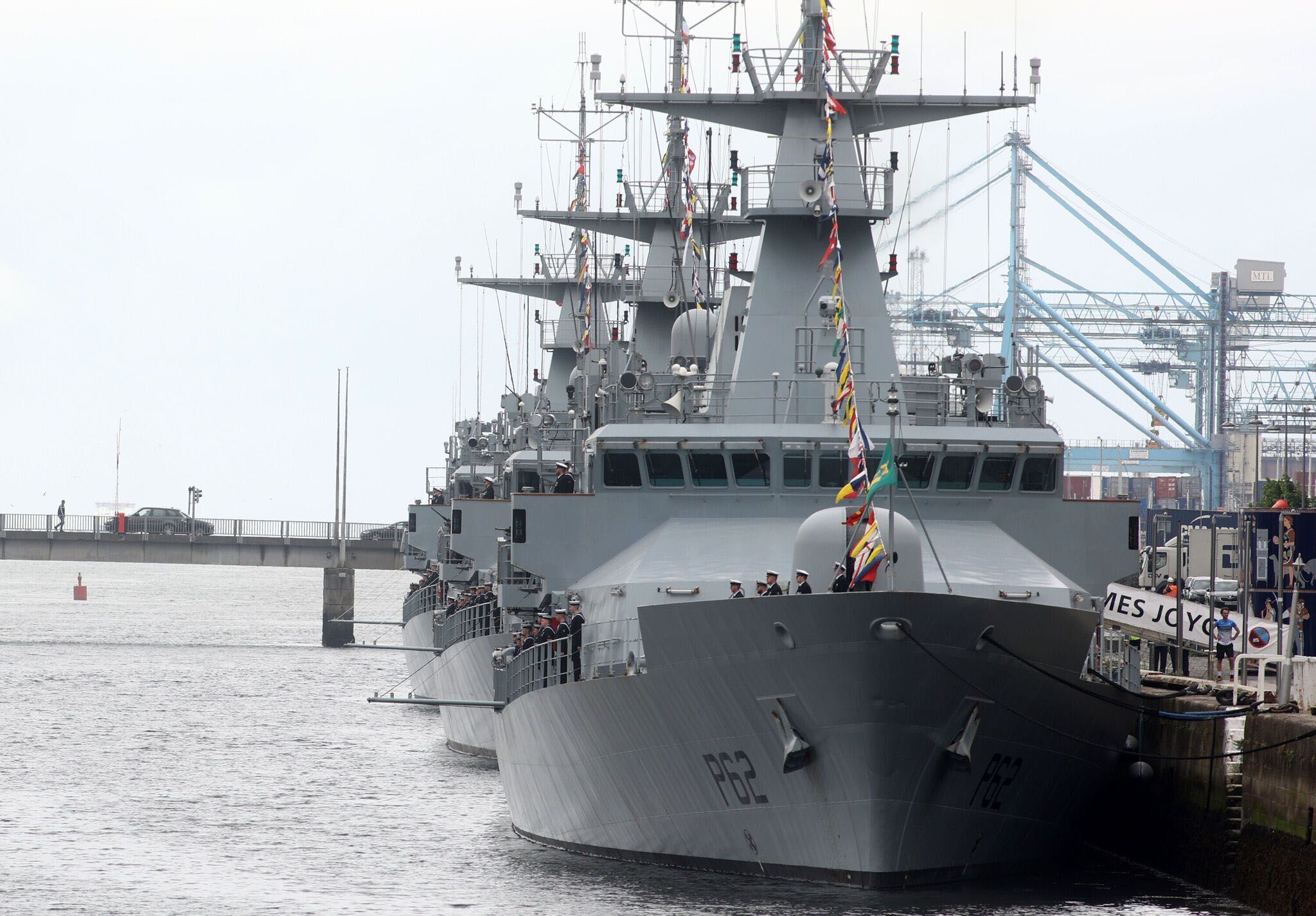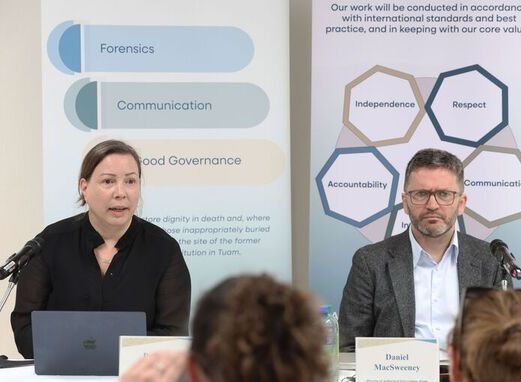It was a little good news on the defense front. Tánaiste Micheál Martin welcomed the highest intake in the Irish Defence Forces in six years.
As reported in these pages last week, inductions to the Irish Army, Air Corps and Naval Service are in line to reach 708 this year, which is a 69 percent increase on 2023.
This will be the first year since 2017 that the Defence Forces have experienced a net growth in numbers, and it comes after a raft of new recruitment and retention initiatives were launched.
Said Tánaiste Martin: “The significant progress made in recruitment and retention across our Defence Force over recent years is very welcome.
“We have turned the corner on recruitment, and I look forward to further progress in the transformation of our Army, Air Corps and Naval Service in years to come. I want to pay tribute to the ongoing innovation by senior military management and the Department of Defence on the structures and methodology of recruitment and retention. That is why we will continue to invest in people, equipment, infrastructure and the command-and-control structures to create a Defence Force ready to face the challenges of future years.”
The challenges can be expected. The investment is certainly needed.
Just days before the new recruitment numbers were announced, the Irish Times reported that the Naval Service faces the immediate prospect of having to send its ships on patrol without functioning weapons, this due to an almost complete lack of qualified personnel.
Reported the Times: “The ordnance section, which is responsible for the upkeep of naval weapons, including large deck-mounted cannons, is now down to just a single technician.
“The second to last technician put in their discharge papers last week. They are on pre-discharge leave before their formal departure early next year.
“As recently as last year, the section consisted of nine highly trained technicians, who are known as weapons artificers or, informally, “tiffys.” It takes a minimum of three artificers to service a ship’s guns before it goes out on patrol.
“Each vessel’s weapons, including the rifles and pistols carried by sailors, must be inspected and issued a “fit-to-fire” certificate before it goes on patrol. The reduced number of trained personnel means there have been occasions this year when inspections of small arms have not been fully completed.
“The worsening crisis now means it is likely the Naval Service will shortly also be unable to certify the larger deck-mounted guns, rendering them unusable at sea.”
Those larger guns might not be needed to intercept drug smugglers or rogue fishing boats. But they are on the ships for a reason, and that reason is the realization that there might be situations where they will be required.
There might, too, be a time when larger ships and bigger guns are required. And for sure more men and women to crew them. The seas around Ireland have lately become something of a playground for those global public menaces, the Russians.
Many vital undersea cables pass close to Ireland’s coast and while the Russians have yet to have a go at breaking or damaging them, there seems to be no such hesitation on the part of Moscow and/or its surrogates in the Baltic Sea.
In recent years, also, the skies around Ireland have seen the unwelcome presence of Russian strategic bombers. Some have flown off the west coast with their transponders off - so posing a threat to commercial flights.
Of course, Ireland is not isolated and alone. Though it be neutral, Dublin has an arrangement with Britain for RAF intervention should Russian planes fly too far into Irish airspace. This arrangement goes back to the early days of the Cold War in the 1950s.
But forgetting the RAF for a minute, as things currently stand, the Irish Defense Forces have no jet interceptors and lack defenses in the skies above 10,000 feet. This is a World War II-era capability.
Clearly, Ireland is not intent on world domination. But when unwelcome characters from the broader world start pushing in on your little corner of said world it is not a bad idea to have the wit to tell them to push off – and have the ability to back up those words.
Right now Ireland has all the wit and none of said backup. So time to buck up.









